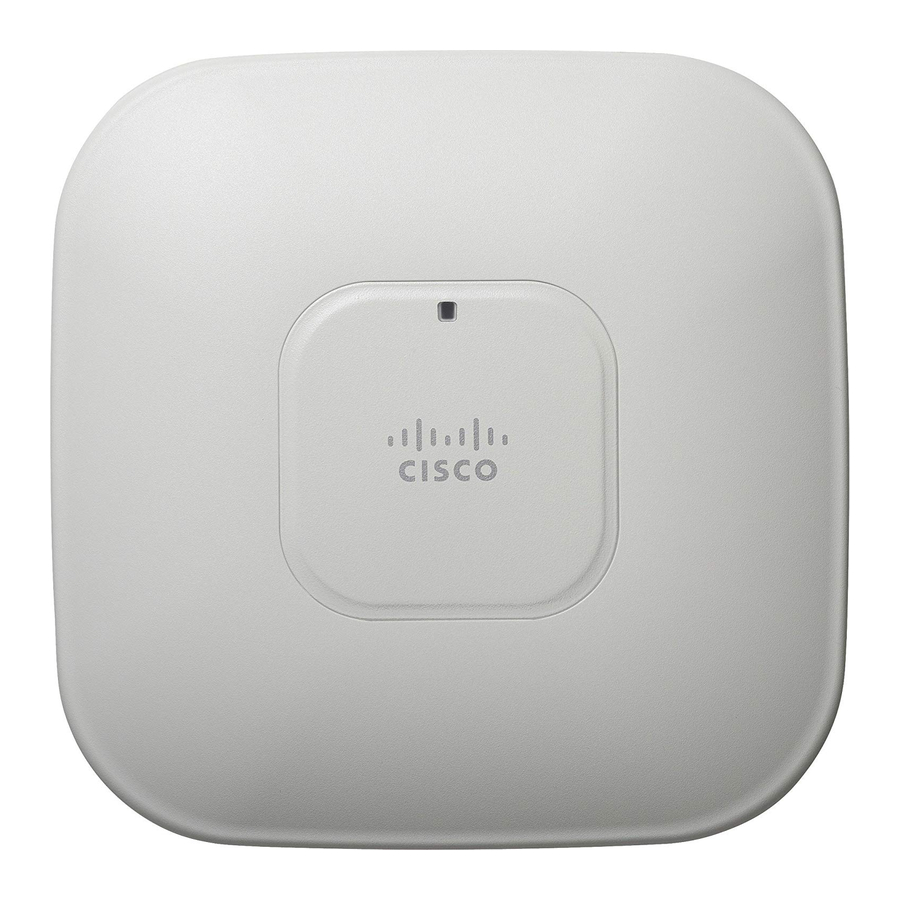Cisco AIR-AP1141N-A-K9 - 802.11G/N Fixed Auto Ap; Int A Getting Started Manual - Page 17
Browse online or download pdf Getting Started Manual for Wireless Access Point Cisco AIR-AP1141N-A-K9 - 802.11G/N Fixed Auto Ap; Int A. Cisco AIR-AP1141N-A-K9 - 802.11G/N Fixed Auto Ap; Int A 37 pages. Autonomous access point

• You cannot configure multiple WEP keys. To configure multiple WEP keys, click Security >
Encryption Manager.
• You cannot assign an SSID to a VLAN that is already configured on the access point. To assign an
SSID to an existing VLAN, choose Security > SSID Manager.
• You cannot configure combinations of authentication types on the same SSID (such as MAC
address authentication and EAP authentication). To configure combinations of authentication
types, choose Security > SSID Manager.
Using the Express Security Page
Follow these steps to create an SSID using the Express Security page:
Type the SSID in the SSID entry field. The SSID can contain up to 32 alphanumeric characters.
Step 1
These characters are not allowed in the SSID: +, ], /, ", TAB, and trailing SPACE.
Note
To broadcast the SSID in the access point beacon, check the Broadcast SSID in Beacon check
Step 2
box.
When you broadcast the SSID, devices that do not specify an SSID can associate to
Note
the access point. This is a useful option for an SSID used by guests or client devices
in public space. If you do not broadcast the SSID, client devices cannot associate to
the access point unless their SSID matches this SSID, so only one SSID can be included
in the access point beacon.
(Optional) Check the Enable VLAN ID check box and enter a VLAN number (1 through
Step 3
4095) to assign the SSID to a VLAN. You cannot assign an SSID to an existing VLAN.
(Optional) Check the Native VLAN check box to mark the VLAN as the native VLAN.
Step 4
Select the security setting for the SSID. The settings are listed in order of their robustness, from
Step 5
No Security to WPA, which is the most secure setting.
a. If you select Static WEP Key, choose the key number and encryption size and enter the
encryption key (10 hexadecimal characters for 40-bit keys or 26 hexadecimal characters for
128-bit keys.
b. If you select EAP Authentication or WPA, enter the IP address and shared secret for the
authentication server on your network.
c. Your 802.11n security configuration must be either no encryption or WPA2/AES. Any other
configuration eliminates the higher data speeds provided by 802.11n.
17
